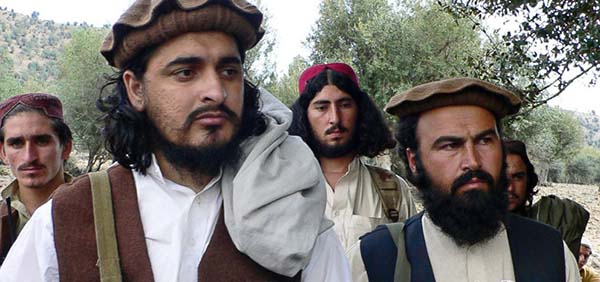The Friday American drone attack in North Waziristan, which killed the leader of Pakistani Taliban Hakimullah Mehsud, has once again brought the US-Pakistani relations under spotlight, and forced Pakistan’s government to quickly respond as an attempt to deal with the consequences of the event. Same as the killing of Al-Qaeda leader Osama Bin Laden, the killing of the Pakistani Taliban leader has once again raised the sensitive issue of national sovereignty of the Pakistani government and the scope of Pakistan’s cooperation with the United States. After the Friday attack, a Pakistani minister was quick to label the killing as “death of peace” talks with the Tehrik-e Taliban Pakistan (TTP) initiated by Nawaz Sharif’s government. And, the Pakistani Interior Minister said the country was going to review all its cooperation with the United States as a result of the killing of the TTP leader.
The attack has put US-Pakistani relations once again into test after relative improvements in the bilateral relations between the two uneasy allies who have had strained ties in recent years. Mehsud’s killing came only a day before a pre-scheduled trip of a delegation of the Pakistani government into North Waziristan to talk to Taliban leaders. It has angered Pakistani officials who believe the attack has scuttled the peace negotiations with Taliban. Some Pakistani officials even have suggested that the country may protest to the attack with cutting NATO supply route to Afghanistan, which is critical to the NATO mission in the country. In response to a possible blockade of supply route by Pakistan, NATO chief Andres Rasmussen tacitly warned Islamabad on Monday that moving to cut NATO supply route to Afghanistan was not in interest of Pakistan.
Despite that the Pakistani government may attempt to limit their cooperation with the US in different areas particularly on the war in Afghanistan, it is less likely that Islamabad once again risk its relations with the West by cutting NATO supply line into Afghanistan. In previous case, the blockade of NATO supply route was not only a problem of the US but it also was costly for Pakistan, which had been under pressures of consequences of the blockade. Finally, as an attempt to undo the harms done to the relations of Pakistan and the West, Pakistan’s then prime minister Raja Parviz Ashraf hastened efforts to open the supply route of NATO forces in Afghanistan. The call by NATO chief on Pakistan’s government to keep the supply route open is indicating that the alliance is also worried about any possible unexpected move from Pakistan to limit their cooperation and even block and critical supply route to the ongoing mission in Afghanistan.
On the other hand, Pakistan’s government is also cautious about the view of its handling of the crisis to the country’s public, who are highly antagonistic to the US drone strikes in the country. It is believed by some intellectuals that the Pakistani government is cooperating, at least to some extent, with the US drone strikes covertly, while formally, Islamabad maintains the policy that the drone strikes carried out by the US in Pakistan’s soil are illegal and violate national sovereignty of Pakistan. Nawaz Sharif’s government is particularly concerned with what the impacts of the attack would be on the public view of his government’s policies as well as the political consensus in the country for talking with the militant groups. After taking power, Sharif quickly moved to create a political consensus in the country for talks with the Taliban and garner support from the country’s political spectrum for his initiative.
Also, the government of Pakistan is concerned from a possible backlash of the killing of Hakimullah Mehsud that could ruin his peace talks with the militant groups. Pakistan’s Taliban have always been suspicious of Islamabad’s role in helping the US to target militant leaders. Also this time, it is highly likely that the Pakistani Taliban is seeing Islamabad’s hand cooperating with the US in killing their leader. And this is not a good sign for Nawaz Sharif’s initiative of talks with the militant groups under Tehrik-e Taliban Pakistan. This to some extent justifies Pakistan’s anger over the killing of Hakimullah Mehsud. The attack also occurred shortly after Pakistan’s Prime Minister visited US president Barack Obama in Washington and returned back to Pakistan.
Pakistan is a key player in the ongoing conflict in Afghanistan and the international efforts to stabilize the country. Both the Afghan government and the US recognize that Pakistan has a critical role in the efforts going on in Afghanistan. However, the issue specifically related to the cooperation between Pakistan and the US-led international alliance in Afghanistan is that both sides undeniably need each other to go through the ongoing transition in the country from NATO to the Afghan security forces. As the United States, Pakistan has much at stake from the ongoing transition in Afghanistan and the withdrawal of foreign troops by end of 2014. Despite the ups and downs in Kabul and Islamabad relations, Pakistan recognizes the stakes in the US withdrawal from Afghanistan and the impacts of possible post-2014 instability in Afghanistan.
Given Pakistan’s internal politics and reliance of Pakistan and the West in Afghanistan, it is expected that Pakistan’s government might move to react to the attack in a way or others to avoid revenge attacks from the militant groups and possibly bring them back to negotiation table. And for the peace initiative of Nawaz Sharif’s government, obviously Islamabad is unhappy with the timing of the attack, if not to the drone attacks in general. The attack seem to have derailed the talks at least for an unknown period of time, as the affiliate groups of the Pakistani Taliban are in a disarray lacking a powerful leader or a monolithic central leadership that could negotiate with Pakistan’s government.

